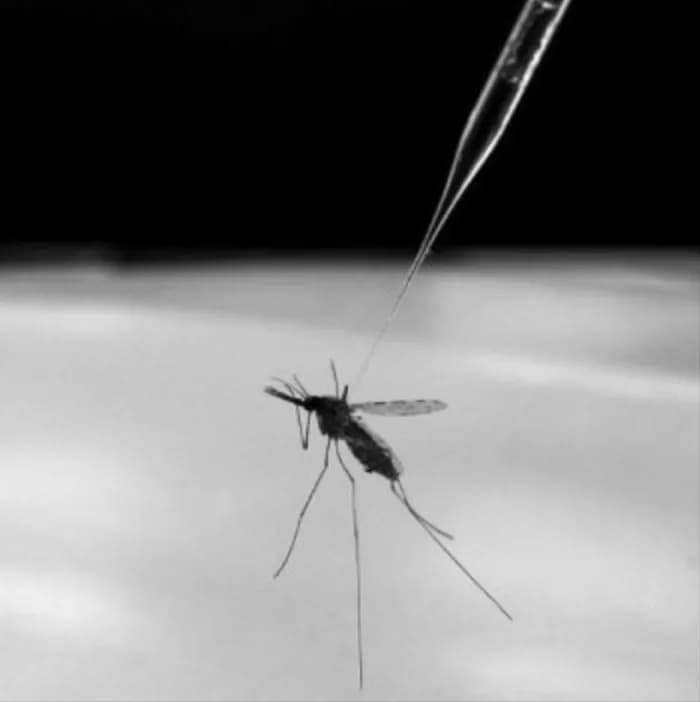
Disease Resistance Successfully Spread From Modified To Wild Mosquitoes
Using genetically modified (GM) mosquitoes to reduce or prevent the spread of infectious diseases is a new but rapidly expanding field of investigation. Among the challenges researchers face is ensuring that GM mosquitoes can compete and mate with their wild counterparts so the desired modification is preserved and spread in the wild population. Investigators at Johns Hopkins University have engineered GM mosquitoes to have an altered microbiota that suppresses human malaria-causing parasites. These GM mosquitos preferred to mate with wild mosquitoes and passed along the desired protection to many generations of offspring.
The research was funded by the National Institute of Allergy and Infectious Diseases (NIAID), part of the National Institutes of Health.
The researchers genetically modified Anopheles mosquitoes, which in nature spread the malaria-causing parasite Plasmodium. The team caged equal numbers of wild and GM mosquitoes and monitored their breeding over 10 generations. Ninety percent of the offspring in each generation passed along the GM trait. Even when combining 10 percent GM with 90 percent wild mosquitoes, the Plasmodium-resistance trait dominated after a few generations. Importantly, the GM mosquitoes maintained their resistance to the malaria parasite for 7 years.
The group also showed that the change in the microbiota resulted in a mating preference among the GM and wild mosquitoes. GM males showed a preference for wild females and wild males preferred GM females; these preferences contributed to the spread of the desired protective trait within the mosquito population.
The authors note that work was conducted in a laboratory setting and that more research is needed to determine if what they observed in the laboratory also will occur under natural conditions. Nevertheless, the study suggests that mosquitoes can be genetically modified to compete in nature with wild populations and spread resistance to the malaria-causing parasite. If implemented, this strategy could eventually result in decreased disease transmission to humans.
Materials provided by NIH/National Institute of Allergy and Infectious Diseases. Note: Content may be edited for style and length.
Disclaimer: DoveMed is not responsible for the accuracy of the adapted version of news releases posted to DoveMed by contributing universities and institutions.
References:
Andrew Pike, Yuemei Dong, Nahid Borhani Dizaji, Anthony Gacita, Emmanuel F. Mongodin, George Dimopoulos. (2017). Changes in the microbiota cause genetically modifiedAnophelesto spread in a population. Science. DOI: 10.1126/science.aak9691
Related Articles
Test Your Knowledge
Asked by users
Related Centers
Related Specialties
Related Physicians
Related Procedures
Related Resources
Join DoveHubs
and connect with fellow professionals

0 Comments
Please log in to post a comment.